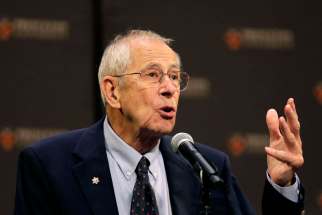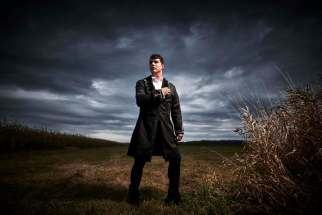Manitoba-born scientist Peebles wins Nobel Prize in physics
Read this article for free:
or
Already have an account? Log in here »
To continue reading, please subscribe:
Monthly Digital Subscription
$0 for the first 4 weeks*
- Enjoy unlimited reading on winnipegfreepress.com
- Read the E-Edition, our digital replica newspaper
- Access News Break, our award-winning app
- Play interactive puzzles
*No charge for 4 weeks then price increases to the regular rate of $19.00 plus GST every four weeks. Offer available to new and qualified returning subscribers only. Cancel any time.
Monthly Digital Subscription
$4.75/week*
- Enjoy unlimited reading on winnipegfreepress.com
- Read the E-Edition, our digital replica newspaper
- Access News Break, our award-winning app
- Play interactive puzzles
*Billed as $19 plus GST every four weeks. Cancel any time.
To continue reading, please subscribe:
Add Free Press access to your Brandon Sun subscription for only an additional
$1 for the first 4 weeks*
*Your next subscription payment will increase by $1.00 and you will be charged $16.99 plus GST for four weeks. After four weeks, your payment will increase to $23.99 plus GST every four weeks.
Read unlimited articles for free today:
or
Already have an account? Log in here »
Hey there, time traveller!
This article was published 08/10/2019 (2259 days ago), so information in it may no longer be current.
The most recent Canadian recipient of the Nobel Prize in physics, cosmologist James Peebles, will be honoured with about $600,000 in prize money — and his picture will hang in at least one Winnipeg dorm room.
“He has become an icon of mine since today, this morning,” said Harshan Singh, an aspiring physicist enrolled in his first-year at the University of Manitoba. “I will probably put his picture on my wall and then look at him every morning.”
The Winnipeg-born, U of M educated Peebles’ theories predicted the existence of dark matter and dark energy, as well as a distant radio signal created after the Big Bang.
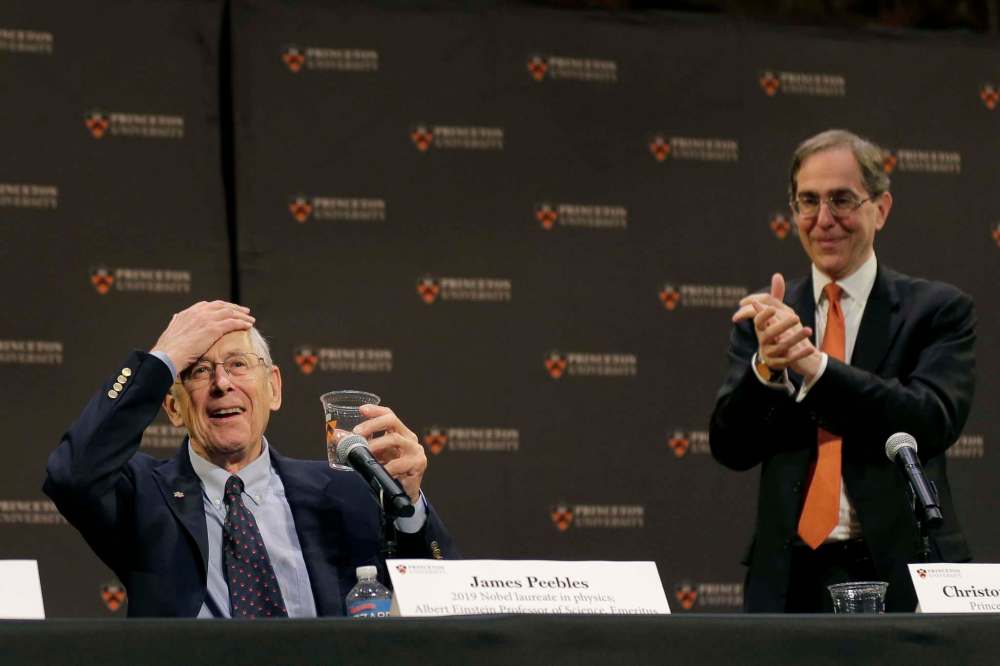
There was a “muted murmur” among the world’s scientists that he should have won the Nobel Prize 41 years ago, when two other scientists were awarded it for stumbling on the faint signals from space Peebles had first theorized with a colleague, according to the U of M newspaper archives.
On Tuesday, the 84-year-old scientist was awarded the most prestigious award in physics for his theories in physical cosmology — a field concerned with the dynamics of the universe. (He shares the award with Michel Mayor and Didier Queloz of the University of Geneva.)
It is perhaps fitting a man who spent decades trying to make sense of invisible matter in the cosmos was born and raised under open Prairie skies.
“I simply like looking at the world around us,” Peebles said during a news conference Tuesday at Princeton University, where he is a professor emeritus. “I love things, the way things work. We’re all built in different ways, and that’s my build.”
Peebles was born in St. Boniface in 1935. Growing up, he was always fascinated by his handy father.
“I loved building things,” the first Manitoban to win a Nobel Prize said, adding clocks in his house were always “haphazard” because he enjoyed pulling them apart.
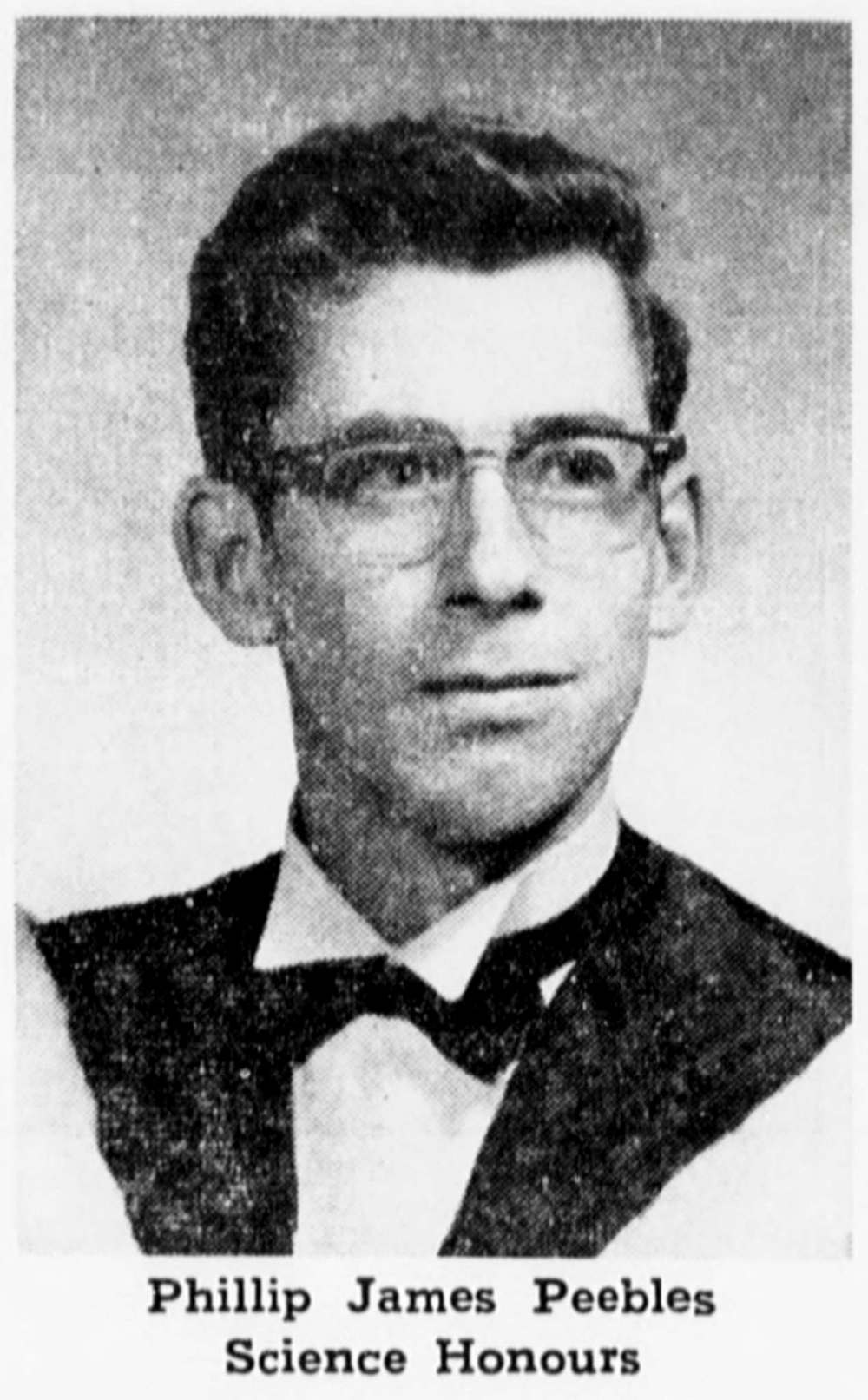
He was raised in Norwood and St. Vital, where he graduated top of his class from Glenlawn Collegiate as a valedictorian in 1953.
“When looking through past yearbooks, it is easy to see the impact James (Jim) made at GCI with his passion for science and fun attitude!” principal Dionne Deer said in a statement to the Free Press.
Peebles enrolled at the U of M, where he would study engineering for two years before his classmates encouraged him to switch to physics. It was Prof. Kenneth Standing (who died this year) who pushed Peebles to continue his studies after he graduated with honours in 1958, working towards a doctoral degree in physics at Princeton University.
He was made a professor at the New Jersey school in 1972, and given the title of Albert Einstein Professor of Science in 1984. (While Peebles has lived in the United States for decades, he has maintained his Canadian citizenship.)
During Roger Dube’s stint working on his thesis at Princeton, the two often shared brown-bag lunches, where they would solve math and logic puzzles with other students and faculty. Both men belonged to the “Gravity Group” — a handful of academics interested in the theory and observational sides of cosmology.
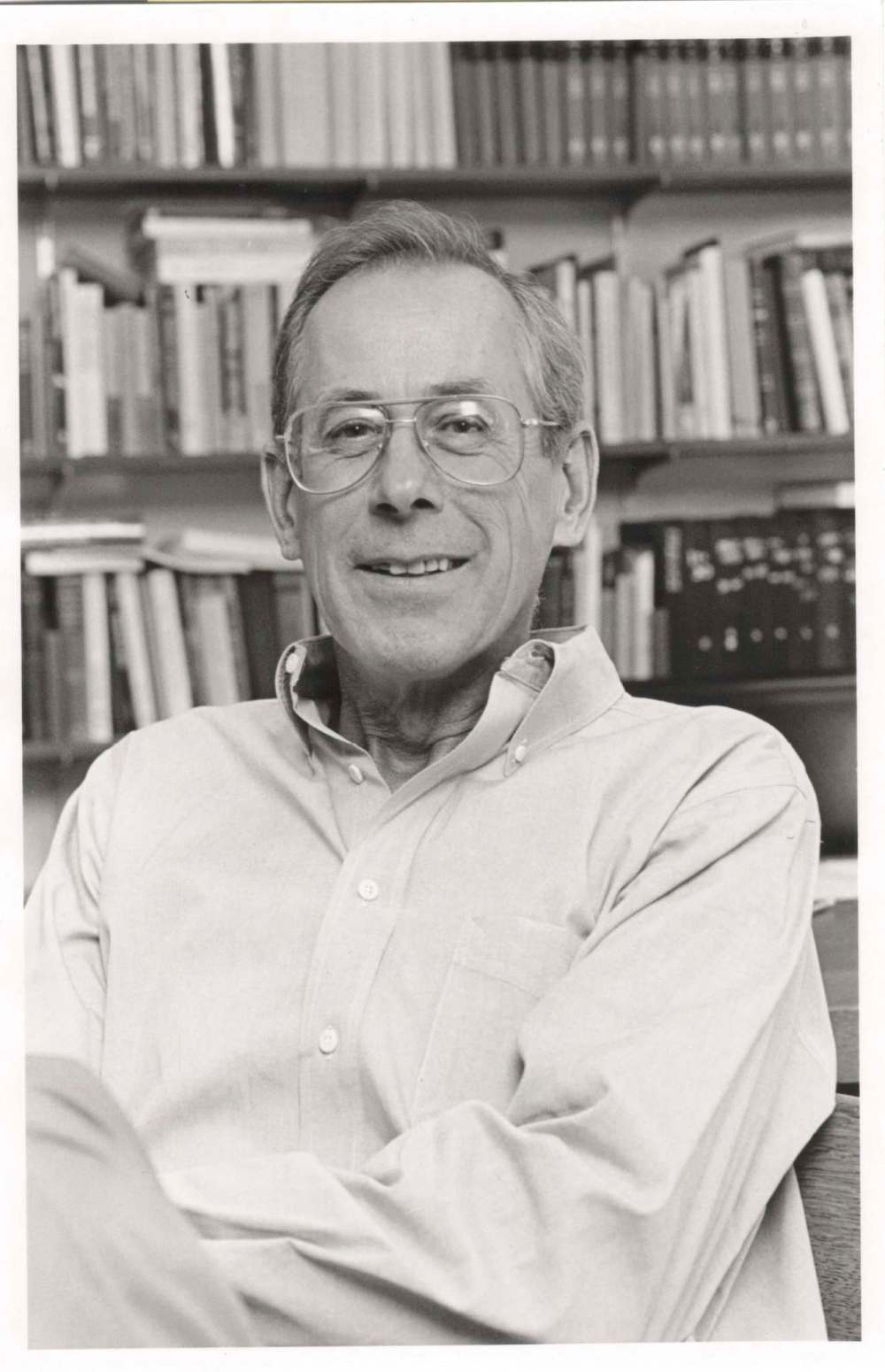
Dube described Peebles as “a very relaxed, approachable person” who is “unflappable” and “very pleasant all the time.”
“What did Jim do that was different that what other cosmologists have done? Jim was distressed by the lack of data (in his field),” he said Tuesday.
So he did his own research and when he published his work, Peebles indicated ways to test his theories. His work has earned him a number of honorary doctorates and in 2017, the Order of Manitoba.
“That link to observational measurement is key to him. That’s why he got the Nobel Prize — because he not only pushed the field forward, but he also gave us the ability to test it as we might,” Dube said.
His theories, Dube added, would answer the question of why only about five per cent of the universe’s mass was accounted for with regular molecules. Although, it is still unclear what exactly can be yielded from the human understanding of Peebles’ theories on dark matter and dark energy’s existence.
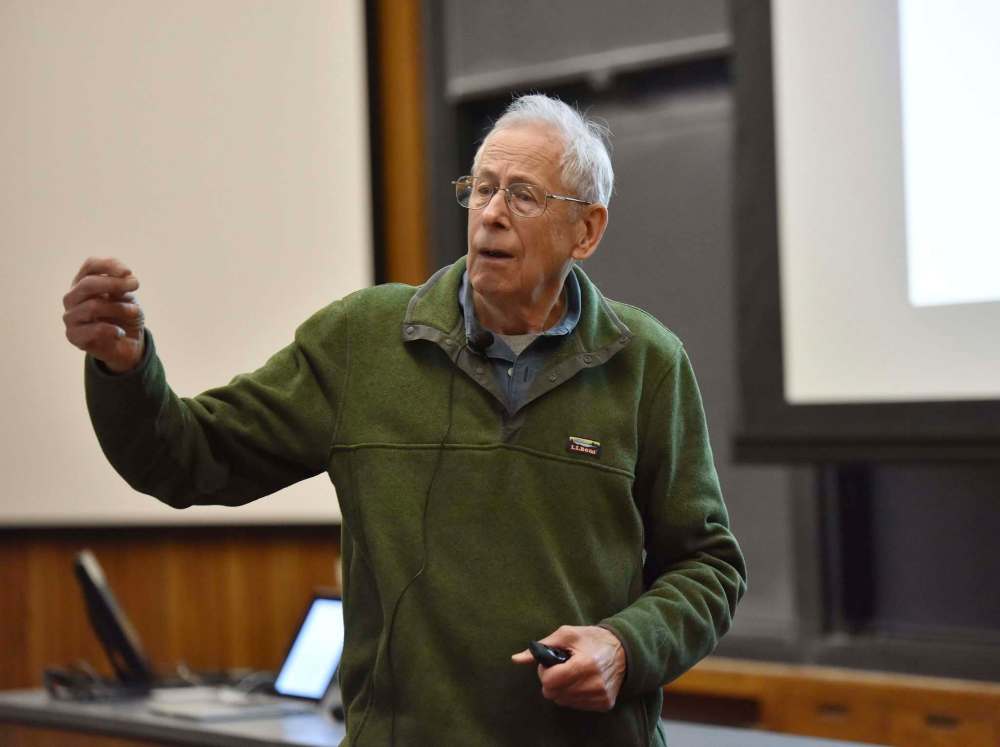
“We can be very sure that theory isn’t the final answer, and we can be very sure that as we discover new aspects of the expanding and evolving universe, we will be startled and amazed once again,” Peebles said Tuesday.
The conference was livestreamed in the U of M’s Armes Building, where dozens of students and faculty listened in. Cheers and applause broke out whenever Peebles mentioned his connection to Winnipeg — and especially, when he said he would donate some of his winnings to the school.
“It’s an inspiration, not just for me, but an inspiration for our students,” said Samar Safi-Harb, a professor of physics and astronomy at the U of M.
Following the conference, Peebles went on a video call with the U of M room and took questions.
When Singh asked how he could follow in Peebles’ footsteps, the acclaimed cosmologist responded: “My firm advice to you is not to plan your career on prizes and awards… Instead, do what you find inspiring, fascinating, interesting. If you are lucky like me, you will find you can actually get paid for doing it and the reward will be immense.”
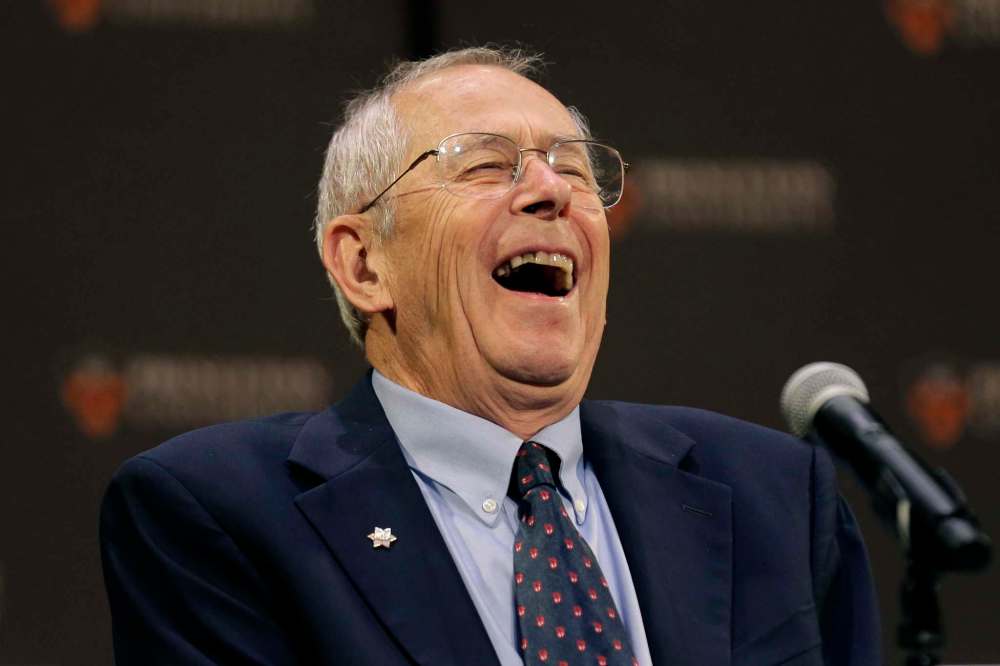
maggie.macintosh@freepress.mb.ca
Twitter: @macintoshmaggie

Maggie Macintosh reports on education for the Winnipeg Free Press. Funding for the Free Press education reporter comes from the Government of Canada through the Local Journalism Initiative.
Our newsroom depends on a growing audience of readers to power our journalism. If you are not a paid reader, please consider becoming a subscriber.
Our newsroom depends on its audience of readers to power our journalism. Thank you for your support.


